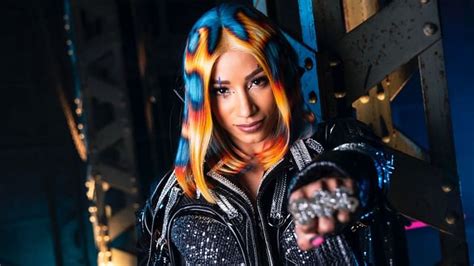
A contestant on the upcoming season of “Love Island USA” has been removed from the show after allegedly racist and offensive posts surfaced online, prompting a heated response from the individual who defended the posts as old and taken out of context.
“Love Island USA” Contestant Ousted Over Controversial Social Media History
A contestant slated to appear on the newest season of “Love Island USA” has been swiftly removed from the cast following the resurfacing of controversial social media posts deemed racist and offensive. The individual, whose identity has not been explicitly revealed by producers or the source article beyond being a prospective contestant for the Peacock series, issued a vehement response, defending the posts as old, misconstrued, and taken out of their proper context. The incident underscores the increasing scrutiny reality television contestants face regarding their online history and the potential ramifications for their careers.
According to a statement released by producers, the decision to remove the contestant was made after becoming aware of the concerning posts and conducting an internal review. “As a result of a review of potentially inappropriate social media content, someone connected with the show will not be moving forward,” the statement confirmed, emphasizing the show’s commitment to inclusivity and zero tolerance for discrimination.
The controversy highlights the rigorous vetting processes now employed by reality TV programs in an attempt to prevent the airing of individuals with problematic pasts, but also illustrates how deeply some past behavior can be buried and then resurfaced by vigilant social media users.
The ousted contestant did not take the dismissal quietly. In a fiery statement posted on their own social media, the individual accused detractors of “digging up old dirt” and attempting to sabotage their opportunity. They argued that the posts were made years ago, and that their views and understanding of social issues have evolved significantly since then. The contestant further claimed that the posts were deliberately misinterpreted and weaponized to create a false narrative.
“It’s incredibly disappointing that something I posted years ago, when I was a completely different person, is being used to define me today,” the contestant wrote. “I have learned and grown so much since then, and I unequivocally condemn racism and prejudice in all its forms.”
The removal comes as “Love Island USA” prepares to launch its sixth season on Peacock. The incident serves as a stark reminder to both aspiring reality TV stars and the networks that air these shows: Past online behavior can have serious consequences, regardless of how long ago the posts were made.
The incident has ignited a broader debate about cancel culture, redemption, and the extent to which individuals should be held accountable for past mistakes. Some argue that people should be given the opportunity to learn and grow from their errors, while others maintain that certain actions warrant permanent consequences, particularly in the context of public platforms.
The incident is not isolated. Many reality TV stars have faced similar scrutiny in recent years. Networks are increasingly aware of the need to thoroughly investigate the backgrounds of potential contestants to avoid controversies that could damage their brand and alienate viewers.
The controversy surrounding the “Love Island USA” contestant raises several key questions about the role of social media in shaping public perception, the responsibilities of reality TV networks, and the complexities of holding individuals accountable for their past actions. It also underscores the challenges of navigating the rapidly evolving landscape of social media and the potential for online behavior to have real-world consequences.
Deeper Dive: Context and Ramifications
The immediate fallout from the controversy is the removal of the contestant from “Love Island USA.” This has obvious implications for the individual’s aspirations and career trajectory, particularly in the world of reality television, where exposure and popularity can translate into significant opportunities. However, the impact extends beyond the individual. The incident also casts a shadow over the show itself, potentially affecting its reputation and viewership.
The vetting processes employed by reality TV networks have come under renewed scrutiny. While most networks conduct background checks and social media audits, these processes are not always foolproof. The sheer volume of online content and the difficulty of interpreting context can make it challenging to identify potentially problematic posts. Moreover, some individuals may be adept at concealing their true views or deleting incriminating content.
The case of the “Love Island USA” contestant highlights the importance of thorough and comprehensive vetting processes. Networks need to invest in sophisticated tools and experienced personnel to effectively identify and assess potential risks. They also need to establish clear guidelines and policies regarding acceptable online behavior.
The incident also underscores the need for ongoing dialogue and education about issues of race, prejudice, and discrimination. Reality TV shows have the potential to be powerful platforms for promoting understanding and empathy. By featuring diverse casts and addressing sensitive topics in a thoughtful and responsible manner, these shows can contribute to positive social change. However, they also have the potential to perpetuate harmful stereotypes and reinforce existing inequalities.
The Contestant’s Defense and the Court of Public Opinion
The contestant’s defense, focusing on the age of the posts and claims of personal growth, is a common tactic in such situations. It hinges on the idea that people change over time and should not be judged solely on the basis of past actions. However, this argument is not always persuasive, particularly when the posts involve offensive or discriminatory language.
The court of public opinion is often unforgiving, and the consequences of online transgressions can be severe and long-lasting. In the age of social media, information spreads rapidly, and reputations can be damaged in an instant. The concept of “cancel culture” has become increasingly prevalent, with individuals facing boycotts, public shaming, and professional repercussions for perceived wrongdoings.
Whether the contestant’s defense will resonate with the public remains to be seen. Some may be willing to forgive and forget, particularly if they believe the individual has genuinely learned from their mistakes. Others may take a harsher stance, arguing that certain actions are simply unacceptable, regardless of when they occurred.
The incident raises fundamental questions about the nature of forgiveness and redemption. How much time must pass before someone can be considered reformed? What criteria should be used to assess whether someone has truly changed? These are complex and nuanced questions that do not have easy answers.
Industry-Wide Implications and Future Precautions
The “Love Island USA” incident is a cautionary tale for the reality TV industry. It highlights the need for greater vigilance, more thorough vetting processes, and a stronger commitment to diversity and inclusion. Networks need to be proactive in addressing these issues to avoid similar controversies in the future.
One potential solution is to implement mandatory training programs for all contestants on issues of race, gender, sexuality, and other forms of discrimination. These programs could help to raise awareness, promote understanding, and prevent future incidents of offensive behavior.
Another important step is to establish clear and transparent guidelines regarding acceptable online behavior. Contestants should be made aware of the potential consequences of posting offensive or discriminatory content, and they should be held accountable for their actions.
Networks also need to be prepared to respond swiftly and decisively when controversies do arise. This may involve removing contestants from the show, issuing public apologies, and taking other appropriate measures. The key is to demonstrate a clear commitment to zero tolerance for discrimination and a willingness to take responsibility for any harm that may have been caused.
The future of reality television depends on its ability to adapt to the changing social landscape. By embracing diversity, promoting inclusivity, and holding individuals accountable for their actions, the industry can ensure that these shows remain relevant and engaging for viewers.
The Broader Context of Reality TV Scandals
This incident with the “Love Island USA” contestant is not an isolated case. The history of reality television is littered with controversies and scandals, ranging from allegations of cheating and bullying to accusations of racism and homophobia.
One of the most common types of scandal involves contestants making offensive or discriminatory remarks. These remarks can be directed at other contestants, members of the public, or entire groups of people. They can be based on race, gender, religion, sexual orientation, or any other protected characteristic.
Another frequent source of controversy is the manipulation of contestants by producers. Some reality TV shows have been accused of deliberately editing footage to create conflict and drama. Others have been accused of encouraging contestants to engage in certain behaviors or say certain things.
These scandals can have serious consequences for the individuals involved. Contestants who are caught making offensive remarks or engaging in unethical behavior can face public shaming, professional repercussions, and even legal action. The shows themselves can also suffer, with sponsors pulling their support and viewers tuning out.
The prevalence of scandals in reality television raises questions about the ethics of the industry. Are these shows simply a form of harmless entertainment, or do they have a responsibility to uphold certain standards of behavior? Should producers be allowed to manipulate contestants for the sake of drama, or should they be held accountable for the consequences of their actions?
These are complex and challenging questions that do not have easy answers. However, it is clear that the reality TV industry needs to take greater responsibility for the ethical implications of its work. By implementing stricter guidelines, conducting more thorough background checks, and promoting a culture of respect and inclusivity, the industry can help to prevent future scandals and ensure that these shows are a positive force in society.
Social Media’s Double-Edged Sword
The rise of social media has fundamentally altered the landscape of reality television. On the one hand, social media provides a powerful platform for contestants to connect with fans, promote their careers, and share their stories. On the other hand, it also creates new opportunities for controversy and scandal.
Social media allows viewers to scrutinize contestants’ every move, both on and off the screen. Any offensive remark, questionable photo, or controversial opinion can quickly go viral, leading to public outrage and professional repercussions.
The incident involving the “Love Island USA” contestant is a prime example of how social media can amplify the consequences of past actions. The posts that led to the contestant’s removal were not new; they had been online for years. However, it was only when they were brought to the attention of a wider audience through social media that they became a major issue.
The double-edged nature of social media presents a unique challenge for reality TV contestants. They need to be aware of the potential risks and rewards of using these platforms. They need to be careful about what they post and how they interact with others online. They also need to be prepared to deal with the consequences of any mistakes they may make.
The Future of Vetting and Accountability
The “Love Island USA” controversy underscores the evolving demands for due diligence in the entertainment industry. As societal awareness of social justice issues grows, the pressure on networks and production companies to thoroughly vet potential talent intensifies. The incident raises critical questions about the efficacy of current vetting processes and the extent to which individuals should be held accountable for past online behavior.
Future vetting processes are likely to incorporate more advanced technologies, such as artificial intelligence and machine learning, to analyze vast amounts of social media data and identify potentially problematic posts. These technologies can help to flag content that may be offensive, discriminatory, or inconsistent with the values of the show.
However, technology alone is not enough. Vetting processes also need to involve human judgment and sensitivity. It is important to consider the context in which posts were made, the individual’s background and experiences, and their subsequent behavior.
Accountability is another key issue. While some argue that individuals should be given the opportunity to learn and grow from their mistakes, others maintain that certain actions warrant permanent consequences. The appropriate level of accountability will depend on the specific circumstances of each case.
In the future, it is likely that reality TV networks will adopt more standardized and transparent accountability policies. These policies will outline the types of behavior that are considered unacceptable, the potential consequences for engaging in such behavior, and the procedures for investigating and resolving allegations of misconduct.
The Ethical Tightrope of Reality Television
Reality television, by its very nature, operates on an ethical tightrope. The pursuit of high ratings often clashes with the need to treat contestants fairly and responsibly. The “Love Island USA” incident is just one example of the ethical challenges that the industry faces.
Producers often face the dilemma of whether to prioritize entertainment over ethics. They may be tempted to exploit contestants’ vulnerabilities, manipulate situations to create drama, or ignore problematic behavior for the sake of ratings.
However, such practices can have serious consequences. They can damage contestants’ mental health, perpetuate harmful stereotypes, and erode public trust in the industry.
To navigate this ethical tightrope, reality TV networks need to adopt a more principled approach. They need to prioritize the well-being of contestants, promote diversity and inclusion, and hold individuals accountable for their actions.
They also need to be more transparent about their production practices. Viewers have a right to know how these shows are made and what steps are taken to ensure fairness and responsibility.
By embracing a more ethical approach, the reality TV industry can ensure that these shows are not only entertaining but also contribute to a more just and equitable society.
FAQ:
1. Why was the “Love Island USA” contestant removed from the show?
The contestant was removed due to the resurfacing of allegedly racist and offensive social media posts. Producers stated that the decision was made after a review of “potentially inappropriate social media content.”
2. What was the contestant’s response to being fired from “Love Island USA”?
The contestant issued a fiery response, claiming that the posts were old, taken out of context, and that they have grown and changed since then. They accused detractors of trying to sabotage their opportunity.
3. What are reality TV shows doing to prevent similar incidents in the future?
Reality TV shows are implementing more rigorous vetting processes, including background checks and social media audits. Some are also considering mandatory training programs for contestants on issues of race, gender, and other forms of discrimination.
4. What does this incident say about “cancel culture” and accountability?
The incident has reignited the debate about cancel culture, redemption, and the extent to which individuals should be held accountable for past mistakes. Some argue for forgiveness and the opportunity to learn, while others believe certain actions warrant lasting consequences.
5. How has social media impacted reality TV scandals?
Social media amplifies the consequences of past actions, allowing viewers to scrutinize contestants’ every move. Offensive remarks or controversial opinions can quickly go viral, leading to public outrage and professional repercussions. Social media enables past behavior to be uncovered and shared easily, influencing public perception.
Analysis and Conclusion
The controversy surrounding the “Love Island USA” contestant serves as a stark reminder of the pervasive influence of social media and the potential ramifications for individuals seeking careers in the public eye. The incident underscores the growing importance of due diligence in the entertainment industry, highlighting the need for thorough vetting processes and clear accountability standards.
Beyond the immediate consequences for the contestant and the show, the incident raises broader questions about the nature of forgiveness, the limits of cancel culture, and the ethical responsibilities of reality television networks. As social attitudes evolve and awareness of social justice issues increases, the industry faces growing pressure to ensure that its productions are not only entertaining but also responsible and inclusive.
The future of reality television depends on its ability to adapt to these changing demands. By embracing diversity, promoting understanding, and holding individuals accountable for their actions, the industry can ensure that these shows remain relevant and engaging for viewers while also contributing to a more just and equitable society. The incident serves as a pivotal moment, compelling the industry to re-evaluate its practices and prioritize ethical considerations alongside entertainment value. The long-term impact will likely include more stringent vetting, greater emphasis on contestant training, and a more cautious approach to online behavior among those seeking fame on reality television. The ripple effects could also extend to other industries where public image and social media presence are critical for success, prompting individuals and organizations to be more mindful of their digital footprint and its potential consequences. The discussion is likely to continue, evolving with social norms and technological advancements, shaping the future of reality TV and its relationship with public perception.









